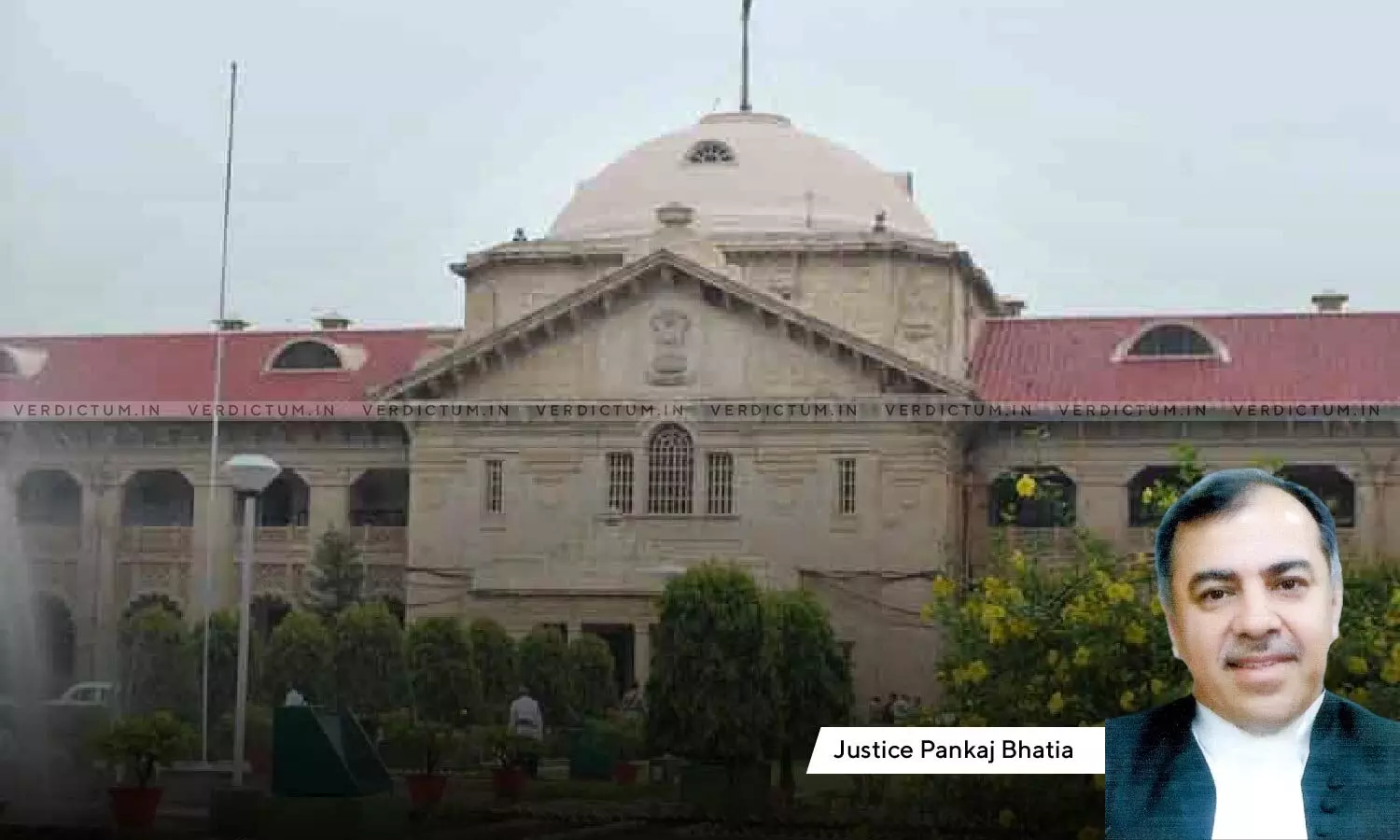
Justice Pankaj Bhatia, Allahabad High Court
No Charges Can Be Collected For Photo Identification: Allahabad High Court Terms Bar Associations' Practice As Unlawful
 |
|Petitioner had sought adjournment due to the inability of the deponent to travel for photo identification and swearing-in of an affidavit.
The Allahabad High Court has prohibited the collection of Rs. 500/- as photo identification charges by Bar Associations from litigants and directed that affidavits notarized under the Notaries Act, 1952 be accepted by the court registry.
A petitioner had sought adjournment due to the inability of the deponent to travel for photo identification and swearing-in of an affidavit. The Court seized the opportunity to critically examine the practice of mandating in-person photo identification and associated charges being levied by bar associations.
A Bench of Justice Pankaj Bhatia said, “it is high time in the era where the efforts are to promote digital India, continuing with a regressive practice of the litigants traveling from far off places solely for photo identification is on the face of it retrogressive. The same has also resulted in the High Court Bar Association as well as Oudh Bar Association charging amounts beyond the sanction of law solely based upon resolutions, and continuation of such practice is neither desirable nor does it goes augur well for the temple of justice which is to function with the active help of Bar Associations in furtherance of the constitutional goal of providing access to justice to all.”
The Court criticized the High Court Bar Association and the Oudh Bar Association for collecting Rs. 500/- for photo identification based on internal resolutions, despite no legal sanction for such charges. The Court said, “As regard the charging of the amount of Rs.500/-, Shri Manoj Dwivedi, General Secretary of Oudh Bar Association apprises that in terms of their resolution, it is the lawyers who are depositing the said amounts which is thereafter paid to them in their account. The said submission is clearly an attempt to bypass the Division Benches orders. Although, the High Court Bar Associations have the power to take steps for welfare of their members, however, the same cannot be linked with the quantum of litigation that is filed in the form of petitions, applications, appeals, etc., before this Court.”
The Court added, “Linking of the welfare measures as argued by Shri Manoj Dwivedi with the affidavits is clearly 12 impermissible and contrary to law, as such, through this interim order, the High Court Bar Association and the Oudh Bar Association are directed to ensure that no amounts are charged from the litigants/advocates towards the photo identification at any rate whatsoever.”
The Court, therefore, directed that no amount whatsoever be charged from litigants or lawyers for photo identification. It also warned that individuals or firms operating photo identification centres would be personally liable if any unauthorized charges were levied beyond the rates sanctioned by the Chief Justice under Chapter IV Rule 3 of the Allahabad High Court Rules.
The Court further addressed the issue of affidavits being accepted only if sworn before Oath Commissioners, as per the Registry’s practice. It held that affidavits sworn before Public Notaries appointed under the Notaries Act, 1952 are equally valid, and no rule under the High Court’s procedures prohibited their acceptance.
The Court said, "Considering the submission of Shri Gaurav Mehrotra that the affidavits sworn before the Notary Public under the Notaries Act are accepted as valid affidavits, as an interim measure, it is directed that the Registry/Stamp Reporting Section shall accept all the petitions, applications, appeals etc., filed before the High Court, both at Allahabad and Lucknow and duly supported by the affidavits sworn before the Notary Public appointed in the entire country of India as a valid affidavit in support of the petitions, applications, appeals, etc".
Counsel for the High Court acknowledged that there was no rule explicitly barring such notarized affidavits, but claimed that objections were still raised due to the Registry’s list of 272 filing defects, many of which are not grounded in statutory rules. The Court found that such defects had no legal backing under the High Court Rules, particularly in matters under Articles 226 and 227 of the Constitution, and thus, could not be enforced.
Reinforcing the fundamental right to judicial remedies, the Court emphasized that “access to justice” is a constitutional right and should not be undermined by technical or procedural obstacles.
“Once there is a right to avail judicial remedies being a constitutional right, the road to access justice has to be smooth and free of unwanted road blocks, lest it becomes road less travelled. The procedural requirements to achieve and ensure the access to justice has to be erased so that the constitutional right is not reduced to an empty provision,” the Court stated.
The Court directed that photo identification charges not be levied by Bar Associations, ordered the Registry to accept affidavits notarized under the Notaries Act, without raising defects. It further clarified that violations of this order would amount to contempt of court, it directed that a copy of the order be circulated to the Registry and Stamp Reporting Section for strict compliance.
The Court also appreciated the use of technology by the Kerala High Court in using email and OTP verification for filing and suggested that similar digital reforms be considered at Allahabad. The matter was referred to the Chief Justice for administrative consideration and possible amendments to procedural rules to streamline access and reduce burdens on litigants.
Finally, while disposing of the issue related to unauthorized fees, the writ petition will continue on its merits.
Cause Title: M/S Rajdhani Inter State Transport Co. New Delhi v. State Of U.P. & Ors.
Appearance:
Petitioner: Advocates Tushar Mittal, Kartikey Dubey, Shrikant Tripathi Counsel